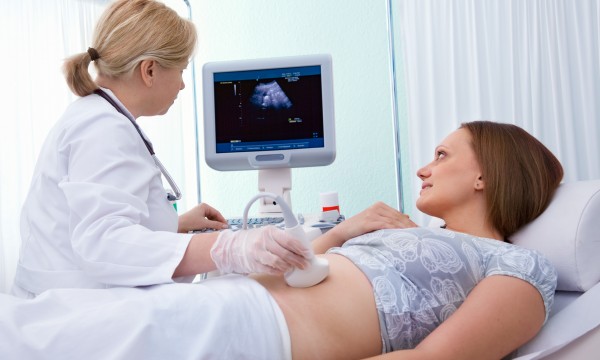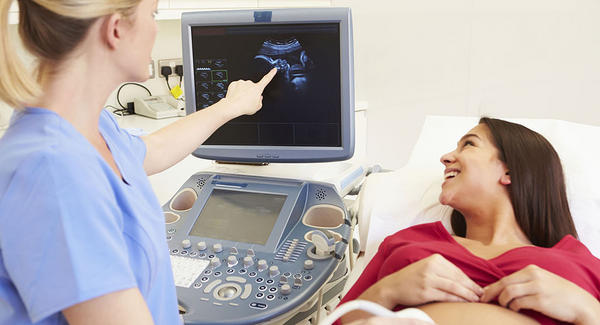
It is important to go for regular prenatal checkups when you’re pregnant as the tests done during these checkups give you the information about your health and your baby’s. These tests are mandatory to detect any problems that could affect your child or if the baby has any congenital disabilities or genetic diseases.
Genetic defects are defects that arise due to genetic disorders. This is not a typical scenario, and usually, babies are born healthy, but a very small fraction of all babies are born with a birth defect. Some of these birth defects and genetic disorders can be screened or tested for during pregnancy. These tests are optional, and so you can either choose to do them or not. Genetic disorders that can be diagnosed before birth include cystic fibrosis, Duchenne muscular dystrophy, Hemophilia A, Polycystic kidney disease, Sickle cell disease, Tay-Sachs disease and Thalassemia.

This test includes foetal ultrasound and maternal blood testing and is performed during the first trimester of pregnancy. These tests also help to check if the baby has any birth defects. This can be done alone or in combination with other tests. There parts of first-trimester screening:
Ultrasound test for foetal nuchal translucency (NT). There maybe some fluid formation or thickening at the back of the neck of the baby. This test uses ultrasound to examine that area for any abnormalities.
Ultrasound for foetal nasal bone determination. There can be issues with the nasal bone of some babies with certain chromosome abnormalities, such as Down syndrome. During this test, an ultrasound is done between 11 and 13 weeks gestation to check for the visibility of the nasal bone.
Two maternal serum (blood) tests. This is a blood test that is done to measure two substances found in the blood of women during pregnancy.
Pregnancy-associated plasma protein screening (PAPP-A). This is a protein that is produced by the placenta during the early stages of pregnancy. Any abnormal levels could be associated with a chromosome abnormality.
Human chorionic gonadotropin (hCG). This is a hormone that is produced by the placenta during early stages of pregnancy. Abnormal levels are associated with an increased risk for chromosome abnormality.

Second trimester prenatal screening includes some blood tests, called multiple markers which provide information if the baby has certain genetic conditions or birth defects. A blood sample from the pregnant mother is taken between the 15th and 20th weeks of pregnancy (16th to 18th is ideal). The multiple markers include:
Alpha-fetoprotein screening (AFP). This blood test measures the level of alpha-fetoprotein in the mothers’ blood during pregnancy. This is a protein produced by the fetus and is present in the amniotic fluid as well. It passes through the placenta into the mother’s blood. The AFP blood test is also called MSAFP (maternal serum AFP).
Abnormal levels of AFP may signal the following:
Other chromosomal abnormalities
Any abnormality in this test will call for some more additional tests to be done. One is an ultrasound that is done to confirm if there are any defects in the spine or other body parts of the baby. Another one is amniocentesis which is a test that is done for accurate diagnosis.
The multiple marker screening test is not for diagnostic purpose as it is not 100 percent accurate. It is done only to determine who should be offered additional testing for their pregnancy. As in any test, there are possibilities of false-positive results or false negative results with these tests as well. Hence it is advisable that pregnant women take up both first and second trimester screening tests. This increases the chances of detecting any abnormality when compared to doing only one screening test. There is a maximum possibility of detecting Down Syndrome when both first and second trimester screening are used.

This is an age old procedure but still serves as the best tool for any physician to get valuable information. This helps to monitor the baby’s growth, track milestones, detect abnormalities, predict the due date, determine the number of babies, see the position of your placenta, and also to know the sex of the baby. The Doppler foetal monitoring is done during the last trimester for women who suffer from gestational diabetes.
Amniocentesis is a test in which a sample of the amniotic fluid is taken from the sac surrounding the foetus and is then analysed. There are a number of tests that can be performed on a sample of amniotic fluid.
Chorionic villus sampling (CVS) is done by taking a sample of the placental tissue. This tissue contains the same genetic material as the foetus and is used for testing for chromosomal abnormalities and some other genetic problems.
There are other tests such as foetal monitoring, glucose testing and Group B strep culture performed on expecting moms.

It is the most powerful creation to have life growing inside of you.There is no bigger gift